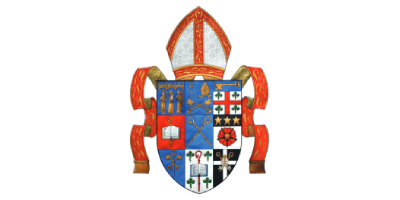Dear Friends,
The birth of Jesus at Christmas, the mystery of the Incarnation which we will shortly once again celebrate, is characterised by the fact that it happened at a precise time in human history. We can speculate endlessly and fairly fruitlessly about God’s choice of that particular time.….but our conviction is that the Word was made flesh in an obscure corner of the then Roman Empire at an identifiable moment, a moment which transformed subsequent human history to the extent that our very calendars regard the coming of Christ as the starting point for a new era in the sweep of that history. Luke’s Gospel, in particular, is at pains to place the Incarnation in its historic setting. Some of his details may (arguably) present chronological challenges in terms of the political circumstances of the time but overall his purpose is clear. Augustus Caesar took a census, Quirinius was governor of Syria. When Jesus the incarnate one grew up and like his cousin John began to minister publicly, Tiberius was emperor, Pontius Pilate was governor of Judea, Herod was tetrarch of Galilee, Philip was tetrarch of Iturea, Lysanius was tetrarch of Abilene, Annas and Caiaphas were high priests….
Who on earth were all these people? With the possible unhappy exception of Pilate, I suspect that the proverbial ‘person in the street’ would not know anything significant about any of them. Their careers are confined to the relative obscurity of classical history. Yet in their day all of them undoubtedly considered themselves important, and indeed the Gospel writer assumes that their prominence will assist his readers in rooting the events he describes in the actuality of their historical context.
I take a peculiar sort of comfort in the fact that all these people have been essentially forgotten. And meanwhile the story of the baby born in a little corner of their world, whose birth would have been as nothing to them, continues to be retold and his nativity celebrated amid worship and singing and feasting. That baby, whatever else one makes of him, impacted upon human history infinitely more significantly than any of ‘the greats‘ whom Luke mentions at the outset of his writing.
So, when people say sadly that Christianity is in decline in our context and culture, that Jesus and his work are destined to be largely forgotten, that the Church is almost on its last legs, I take comfort in the resilience and the power of the Christmas story. The great classical figures, once so self – important, have passed into obscurity but not so the unique magnetism of the Christmas narrative. When we are long dead and gone, the story of the baby of Bethlehem will continue to be told with freshness and potency. And I would dare to go further. The day will surely come when Biden and Trump and Putin and Higgins and Varadkar and Sunak and Macron and all the rest of them, the veritable Caesars of our own time, along no doubt with a host of bishops also, will be largely forgotten, their names only known to the select few who will one day study early twenty first century history almost as a lost art. And when that day comes, as it surely will, the power and the glory of events in Nazareth and Bethlehem all those years ago will endure like a bright light shining above ‘the wrecks of time’ and will continue to inspire human imagination and to texture humanity’s search for meaning. In this sure and certain expectation I find peculiar comfort, and it helps me to keep present challenges and current demoralising moments in their proper perspective.
The poet Shelley expressed similar thoughts about those who consider themselves mighty in this world and fail to take the long view. His little sonnet Ozymandias explores the fate of so called great ones amidst the ravages of time, and how their arrogance and hubris comes to naught. A traveller describes encountering in a distant land a decaying monument to an obscure king who had however considered his dominion would endure indefinitely. In the midst of the desert are scattered broken pieces of a statue, head, face and limbs. Still visible on the pedestal are the haunting words – “ my name is Ozymandias, King of Kings, Look on my works ye mighty and despair!” And then comes the punch line of the sonnet – “ Nothing beside remains. Round the decay of that colossal wreck , boundless and bare, the lone and level sands stretch far away.”
Tiberius , Augustus, today’s political ‘greats’ and all the others I’ve mentioned, for all they may undoubtedly achieve in their time, do well to ponder the ultimate fate of Ozymandias. And, taking the long view, when those people are eventually consigned to obscurity the transformative, magnetic, captivating, life – changing story of the Baby of Bethlehem, Jesus the Saviour, will continue to be told and to enthral the world. Such is our faith. Such is the unswerving conviction of the Church. A Very Happy Christmas, one and all!
———
In the New Year, we hugely look forward to welcoming the Revd Diane Matchett who will be moving from the diocese of Armagh and coming among us as dean of Tuam and incumbent of the Tuam and Omey parishes. It will be a joy to have a person of such pastoral energy and great flair in our midst. Holidays in her formative years made Roundstone and its environs familiar places for her, and we rejoice that she now feels called to exercise her ministry in the West in a long term manner. She will be installed in St Mary’s Cathedral Tuam at 1700 on Sunday January 14.
Michael Tuam Limerick and Killaloe
